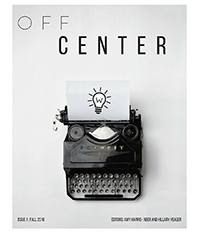COM 11: Editing Strategies
Dynamic PDF: Editing Strategies
Editing is primarily about searching for and correcting grammatical and typographical errors. Editing will allow you to make changes to improve the overall quality of your writing in terms of language, expression, and style. People often proofread during this stage of the process as well.
Before Editing:
- Allow yourself plenty of time. Ideally, you should step away from your writing for a day or two, but even a half-hour break can allow you to approach your work with fresh
- Print out a hard Reading from your computer screen is not ideal for everyone, and it is easy to gloss over an issue if you are used to seeing it on the screen. You can use a colored pen to mark changes you wish to make.
- Keep a list of common errors close Many handbooks contain a list of the most common errors as well as solutions for each one.
- Review previously graded Speak with your instructor or a writing consultant to help you identify any troublesome areas in your writing. Knowing your own writing patterns can be a great help when proofreading.
While Editing:
- Don’t rush! Read slowly and carefully to allow your eyes the time they need to spot the errors.
- Use the search in document function to look for common errors from your list or For example, if you commonly confuse “there,” “their,” and “they’re,” search for each one and see if you used the word correctly in context.
- Read the paper backward starting from the last sentence, one sentence at a time, until you reach the beginning of your paper. This forces you to pay close attention to each sentence and its Reading in this way can keep you from accidentally “reading” something you didn’t actually write.
- Have a friend, classmate, or writing consultant read your paper to identify confusing sentences. Having someone else read your paper is one of the best ways to ensure you find and correct awkward sentence structures, transitions, and run –on A sentence might seem clear to you but confuse an outside reader.
- Read aloud. This strategy can help you recognize run-on sentences, awkward transitions, and other errors you may not notice while reading This strategy can be accomplished in a few different ways: Read aloud to yourself. Read aloud to a friend. Have a friend read your paper to you.
Office Phone
(615) 904-8237
Location
Walker Library, Room 362
Address:
The Writing Center
Box 70
Middle Tennessee State University
Murfreesboro, TN 37132
Read about our 45th Anniversary event and take a look at our growing digital archive!



